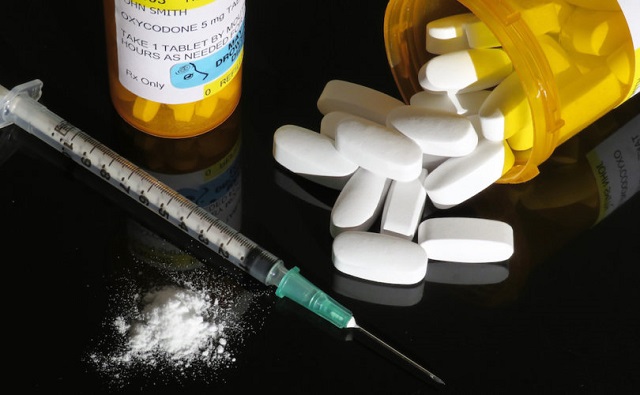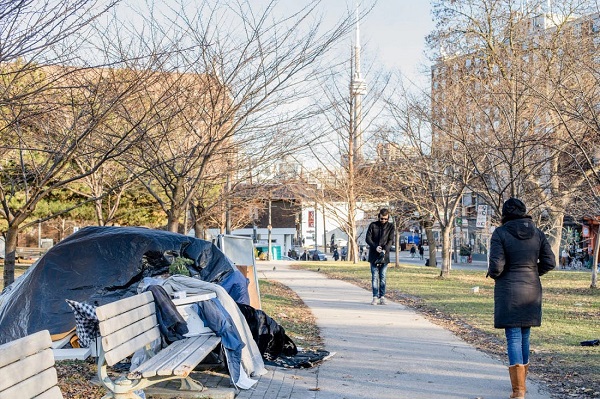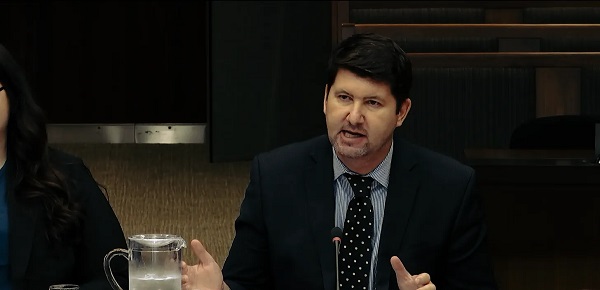Addictions
British Columbia appears to have quietly authorized free fentanyl for kids without parental consent

From LifeSiteNews
In addition to having low requirements for children to obtain the drugs, the document fails to list a minimum age for receiving recreational fentanyl.
British Columbia has apparently authorized the distribution of free fentanyl to children without parental consent or perhaps even knowledge.
Earlier this week, British Columbia Centre on Substance Use (BCCSU), an influential research organization, told National Post journalist Adam Zivo that their protocols for the prescription of “safe” fentanyl tablets to children were contracted by the province “to further support clinicians prescribing safer supply across the province.”
The protocols were published in August, but both the B.C. government and mainstream media have remained relatively silent on the new regulations.
According to the protocols, the only special requirement for children to obtain fentanyl is the use of a “two prescriber approval system.” This means one doctor will run the initial patient interview while a different doctor will review the child’s charts before signing off on the drug prescription.
In addition to having low requirements for children to obtain the drugs, the document fails to list a minimum age for receiving recreational fentanyl. Furthermore, the protocols completely neglect to mention of the rights and roles of parents.
According to the National Institute on Drug Abuse, fentanyl is 50 to 100 times more potent than morphine and a highly addictive drug. Because of its potency, the drug is often mixed with other less powerful drugs, which can easily lead to an overdose. Additionally, fentanyl users will need to increase their dose as the brain adapts to the drug to receive the same results.
As absurd and unfounded as these protocols seem, the BCCSU went a step further by admitting that there is no evidence to support their new recommendations.
“To date, there is no evidence available supporting this intervention, safety data, or established best practices for when and how to provide it,” the document reads, adding that “a discussion of the absence of evidence supporting this approach” is a necessary step in acquiring informed consent from patients.
Since the release of the National Post exposé, Canadians have voiced their disbelief and dismay over the new regulations across social media, with many questioning why the B.C. government would provide hard drugs to minors.
“Now, in BC, the NDP (supported by Trudeau) have approved handing out (at taxpayers’ expense) actual fentanyl,” filmmaker Aaron Gunn wrote on X, formerly known as Twitter.
“Including to minors under the age of 18,” he added. “Without parental consent.”
Ever since producing Canada is Dying, the situation in this country has continued to deteriorate.
Now, in BC, the NDP (supported by Trudeau) have approved handing out (at taxpayers' expense) actual fentanyl.
Including to minors under the age of 18.
Without parental consent. https://t.co/AN03AxBcEw
— Aaron Gunn (@AaronGunn) January 11, 2024
Similarly, Conservative Party of B.C. leader John Rustad condemned the plan, saying, “It seems that parents will actually be powerless to stop the (NDP Eby) government from supplying their children with fentanyl.”
“This is nightmare fuel for parents and families,” he added.
Deaths from drug overdoses in Canada have gone through the roof in recent years, and have only increased in British Columbia after Prime Minister Justin Trudeau’s federal government allowed the province to decriminalize drugs.
The effects of decriminalizing hard drugs in various parts of Canada, particularly in British Columbia where possession of such drugs in small amounts is outright legal, has been exposed in Gunn’s recent documentary, Canada is Dying, and in U.K. Telegraph journalist Steven Edginton’s mini-documentary, Canada’s Woke Nightmare: A Warning to the West.
Gunn says he documents the “general societal chaos and explosion of drug use in every major Canadian city.”
“Overdose deaths are up 1000 percent in the last 10 years,” he said in his film, adding that “[e]very day in Vancouver four people are randomly attacked.”
Despite this, B.C’s. Supreme Court recently ruled that preventing drug users from going near playgrounds would violate their constitutional right and cause “irreparable harm.”
Trudeau’s federal policy put in place in May 2022 in effect decriminalized hard drugs on a trial-run basis in the province-wide. While the policy was approved in 2022, it did not come into effect until February 2023.
Under the policy, the federal government began allowing people within the province to possess up to 2.5 grams of hard drugs without criminal penalty, but selling drugs remained a crime.
The policy has been widely criticized, especially after it was found that the province broke three different drug-related overdose records in the first month the new law was in effect.
Despite the policy, deaths from drug overdoses in Canada continue to skyrocket. The most recent statistics from 2021 show that they went up 33%.
Addictions
BC premier admits decriminalizing drugs was ‘not the right policy’

From LifeSiteNews
Premier David Eby acknowledged that British Columbia’s liberal policy on hard drugs ‘became was a permissive structure that … resulted in really unhappy consequences.’
The Premier of Canada’s most drug-permissive province admitted that allowing the decriminalization of hard drugs in British Columbia via a federal pilot program was a mistake.
Speaking at a luncheon organized by the Urban Development Institute last week in Vancouver, British Columbia, Premier David Eby said, “I was wrong … it was not the right policy.”
Eby said that allowing hard drug users not to be fined for possession was “not the right policy.
“What it became was a permissive structure that … resulted in really unhappy consequences,” he noted, as captured by Western Standard’s Jarryd Jäger.
LifeSiteNews reported that the British Columbia government decided to stop a so-called “safe supply” free drug program in light of a report revealing many of the hard drugs distributed via pharmacies were resold on the black market.
Last year, the Liberal government was forced to end a three-year drug decriminalizing experiment, the brainchild of former Prime Minister Justin Trudeau’s government, in British Columbia that allowed people to have small amounts of cocaine and other hard drugs. However, public complaints about social disorder went through the roof during the experiment.
This is not the first time that Eby has admitted he was wrong.
Trudeau’s loose drug initiatives were deemed such a disaster in British Columbia that Eby’s government asked Trudeau to re-criminalize narcotic use in public spaces, a request that was granted.
Records show that the Liberal government has spent approximately $820 million from 2017 to 2022 on its Canadian Drugs and Substances Strategy. However, even Canada’s own Department of Health in a 2023 report admitted that the Liberals’ drug program only had “minimal” results.
Official figures show that overdoses went up during the decriminalization trial, with 3,313 deaths over 15 months, compared with 2,843 in the same time frame before drugs were temporarily legalized.
Addictions
Canada must make public order a priority again

A Toronto park
Public disorder has cities crying out for help. The solution cannot simply be to expand our public institutions’ crisis services
[This editorial was originally published by Canadian Affairs and has been republished with permission]
This week, Canada’s largest public transit system, the Toronto Transit Commission, announced it would be stationing crisis worker teams directly on subway platforms to improve public safety.
Last week, Canada’s largest library, the Toronto Public Library, announced it would be increasing the number of branches that offer crisis and social support services. This builds on a 2023 pilot project between the library and Toronto’s Gerstein Crisis Centre to service people experiencing mental health, substance abuse and other issues.
The move “only made sense,” Amanda French, the manager of social development at Toronto Public Library, told CBC.
Does it, though?
Over the past decade, public institutions — our libraries, parks, transit systems, hospitals and city centres — have steadily increased the resources they devote to servicing the homeless, mentally ill and drug addicted. In many cases, this has come at the expense of serving the groups these spaces were intended to serve.
For some communities, it is all becoming too much.
Recently, some cities have taken the extraordinary step of calling states of emergency over the public disorder in their communities. This September, both Barrie, Ont. and Smithers, B.C. did so, citing the public disorder caused by open drug use, encampments, theft and violence.
In June, Williams Lake, B.C., did the same. It was planning to “bring in an 11 p.m. curfew and was exploring involuntary detention when the province directed an expert task force to enter the city,” The Globe and Mail reported last week.
These cries for help — which Canadian Affairs has also reported on in Toronto, Ottawa and Nanaimo — must be taken seriously. The solution cannot simply be more of the same — to further expand public institutions’ crisis services while neglecting their core purposes and clientele.
Canada must make public order a priority again.
Without public order, Canadians will increasingly cease to patronize the public institutions that make communities welcoming and vibrant. Businesses will increasingly close up shop in city centres. This will accelerate community decline, creating a vicious downward spiral.
We do not pretend to have the answers for how best to restore public order while also addressing the very real needs of individuals struggling with homelessness, mental illness and addiction.
But we can offer a few observations.
First, Canadians must be willing to critically examine our policies.
Harm-reduction policies — which correlate with the rise of public disorder — should be at the top of the list.
The aim of these policies is to reduce the harms associated with drug use, such as overdose or infection. They were intended to be introduced alongside investments in other social supports, such as recovery.
But unlike Portugal, which prioritized treatment alongside harm reduction, Canada failed to make these investments. For this and other reasons, many experts now say our harm-reduction policies are not working.
“Many of my addiction medicine colleagues have stopped prescribing ‘safe supply’ hydromorphone to their patients because of the high rates of diversion … and lack of efficacy in stabilizing the substance use disorder (sometimes worsening it),” Dr. Launette Rieb, a clinical associate professor at the University of British Columbia and addiction medicine specialist recently told Canadian Affairs.
Yet, despite such damning claims, some Canadians remain closed to the possibility that these policies may need to change. Worse, some foster a climate that penalizes dissent.
“Many doctors who initially supported ‘safe supply’ no longer provide it but do not wish to talk about it publicly for fear of reprisals,” Rieb said.
Second, Canadians must look abroad — well beyond the United States — for policy alternatives.
As The Globe and Mail reported in August, Canada and the U.S. have been far harder hit by the drug crisis than European countries.
The article points to a host of potential factors, spanning everything from doctors’ prescribing practices to drug trade flows to drug laws and enforcement.
For example, unlike Canada, most of Europe has not legalized cannabis, the article says. European countries also enforce their drug laws more rigorously.
“According to the UN, Europe arrests, prosecutes and convicts people for drug-related offences at a much higher rate than that of the Americas,” it says.
Addiction treatment rates also vary.
“According to the latest data from the UN, 28 per cent of people with drug use disorders in Europe received treatment. In contrast, only 9 per cent of those with drug use disorders in the Americas received treatment.”
And then there is harm reduction. No other country went “whole hog” on harm reduction the way Canada did, one professor told The Globe.
If we want public order, we should look to the countries that are orderly and identify what makes them different — in a good way.
There is no shame in copying good policies. There should be shame in sticking with failed ones due to ideology.
Our content is always free – but if you want to help us commission more high-quality journalism,
consider getting a voluntary paid subscription.
-

 Agriculture1 day ago
Agriculture1 day agoFrom Underdog to Top Broodmare
-

 Health2 days ago
Health2 days agoCanada surrenders control of future health crises to WHO with ‘pandemic agreement’: report
-

 Censorship Industrial Complex2 days ago
Censorship Industrial Complex2 days agoCanada’s justice minister confirms ‘hate crimes’ bill applies to online content
-

 Health1 day ago
Health1 day agoSovereignty at Stake: Why Parliament Must Review Treaties Before They’re Signed
-

 Bruce Dowbiggin2 days ago
Bruce Dowbiggin2 days agoIs The Latest Tiger Woods’ Injury Also A Death Knell For PGA Champions Golf?
-

 Business1 day ago
Business1 day ago$15B and No Guarantees? Stellantis Deal explained by former Conservative Shadow Minister of Innovation, Science and Technology
-

 Alberta2 days ago
Alberta2 days agoAlberta’s licence plate vote is down to four
-

 Business2 days ago
Business2 days ago“Modernization,” They Call It: How Ottawa Redefined Fraud as Progress










